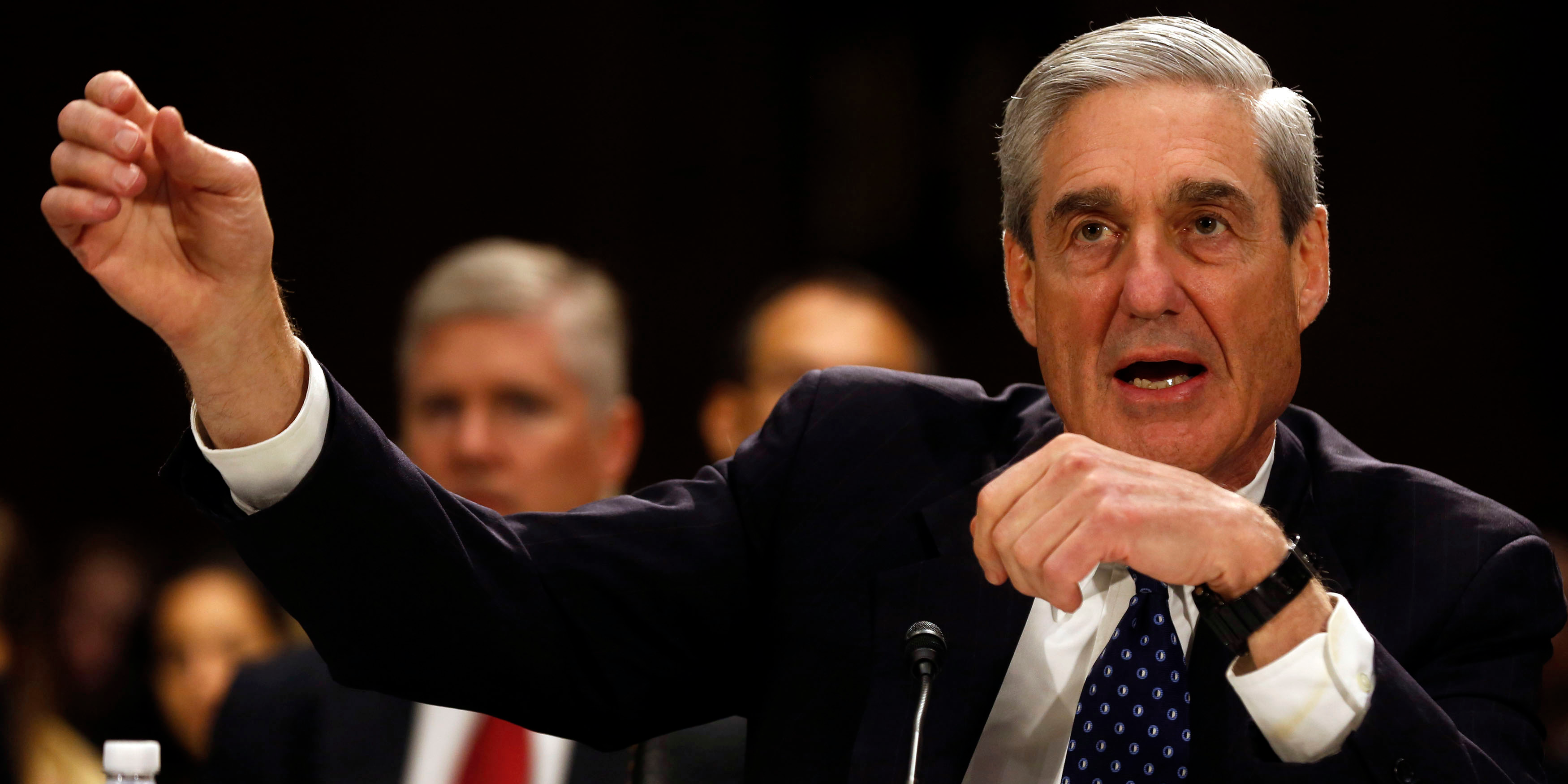- The special counsel Robert Mueller’s office on Tuesday filed a motion to scale back evidence sharing in its case against 13 Russian nationals and three Russian entities charged in the Russia investigation.
- Mueller cited the risk of revealing the identities of “uncharged co-conspirators” to Russian intelligence.
- The motion confirms that Mueller’s February indictment against the Russians was far from an exhaustive list of those suspected of involvement in influence operations in the US.
Sign up for the latest Russia investigation updates here.
The special counsel Robert Mueller’s office filed a protective order Tuesday to limit evidence sharing in the case against the 13 Russian nationals and three Russian entities indicted in February as part of the Russia investigation.
They were charged with conspiring to interfere in the 2016 US election by mounting a social-media disinformation campaign to sway voter opinions during the presidential campaign.
In its motion on Tuesday, Mueller’s office cited the risk of revealing to Russian intelligence the identities of “uncharged individuals and entities” believed to be “continuing to engage in interference operations” in the US.
"The evidence in this case will also include numerous reports and affidavits filed in connection with this investigation that describe investigative steps, identify uncharged co-conspirators, and disclose various law enforcement and intelligence collection techniques," the document said.
The motion was filed in response to a demand last month from Concord Management and Consulting, one of the firms charged in February, that the US government turn over 51 categories of information to the defense to help it prepare for a trial.
Concord was founded by Yevgeny Prigozhin, a wealthy Russian businessman linked to Russian President Vladimir Putin and senior Russian intelligence operatives. Prigozhin was one of the individuals Mueller's office indicted in February on charges that he bankrolled a Russian troll farm's efforts to spread fake news and disinformation leading up to the election. Concord pleaded not guilty in May.
Attorneys for Concord said last month that they planned to file several motions challenging Mueller's authority and accusing his office of breaking the law when it brought forth the indictment.
They also accused the special counsel of charging the Russians with a "make-believe crime."
"The reason is obvious, and is political: to justify his own existence the Special Counsel has to indict a Russian - any Russian," wrote Eric A. Dubelier and Katherine Seikaly.
Legal experts said that because of Concord's and Prigozhin's apparent ties to the Kremlin and Russian intelligence, prosecutors would most likely fight the defense's motion seeking evidence. For that reason, Tuesday's development is not altogether surprising.
But this new filing confirms that Mueller's February indictment against the Russians was far from an exhaustive list of those suspected of involvement in influence operations in the US.

